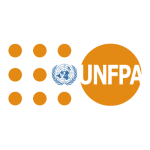Three core areas of focus
The three core areas of our work – reproductive health, gender equality and population and development strategies – are inextricably related. Population dynamics, including growth rates, age structure, fertility and mortality, migration and more, influence every aspect of human, social and economic development. Reproductive health and women’s empowerment powerfully affect, and are affected by, population trends.
Population and development strategies
The fact that world population is edging toward 7 billion people in 2011 (up from 2.5 billion in 1950)has profound implications for development. Governments need to be able to gather adequate information about population dynamics and trends in order to create and manage sound policies and generate the political will to appropriately address both current and future needs. UNFPA supports governments in every aspect of this task, including censuses, surveys and population and development-related research and analysis. Key areas of focus include migration, ageing, climate change and urbanization. The 7 Billion Actions campaign, spearheaded by UNFPA and partners, is an attempt to engage people from all walks of life and places in the world in these issues.
Population Dynamics and Climate Change
State of World Population 2011
Facing a Changing World: Women, Population and Climate
Sexual and reproductive health
Working with a wide range of partners, UNFPA assists governments in delivering sexual and reproductive health care throughout the lifecycle of women. Areas of assistance include:
Voluntary family planning
Antenatal, safe delivery and post-natal care
Prevention of abortion and management of its consequences
Treatment of reproductive tract infections
Prevention, care and treatment of sexually transmitted infections, including HIV
Information, education and counselling, as appropriate, on human sexuality and reproductive health;
Prevention of violence against women, care for survivors of violence and other actions to eliminate traditional harmful practices
Appropriate referrals for further diagnosis and management of the above.
Improving maternal health, MDG5, is a key priority for UNFPA and the goal which lags farthest behind. Key initiatives in this area include the Maternal Health Thematic Fund, the Campaign to End Fistula and numerouspartnerships. The importance of universal access to reproductive health is underscored by the fact that it was added as an MDG target by the international community in 2005.
Access to reproductive health care also demands what UNFPA calls reproductive health commodity security, the ability for all individuals to obtain and use affordable, quality reproductive health supplies of their choice whenever they need them. This is the aim of the Global Programme on Reproductive Health Commodity Security, which UNFPA spearheads. Expanding access to reproductive health care also relies on skilled midwives and other health care workers.
State of World Midwifery
Adding It Up
Focus on Five: Women’s Health and the MDGs
Family Planning
Globally some 215 million women worldwide who would like to avoid or delay a pregnancy lack access to effective contraception. Fulfilling the unmet need for modern family planning in the developing world would reduce unintended pregnancies from 75 million to 22 million. UNFPA advocates for the right of all people to voluntarily decide the number and timing of their children. It supports programmes that improve access to and affordability of family planning services, offer a broad selection of choices, reflect high standards of quality of care, are sensitive to cultural conditions, provide sufficient information about their use and address women’s other reproductive health needs.
Adding It Up: Costs and Benefits of Investing in Family Planning
Reducing Unmet Need for Family Planning
Family Planning: A Global Handbook for Providers
Gender equality and women’s empowerment
The importance of gender equality and women’s empowerment to development progress is underscored by the fact that this was selected as one of the eight Millennium Development Goals. Beyond being a goal in itself, gender equality is also a driver for all the MDGs, and is intimately linked and specifically connected to goals to improve maternal and newborn health and reduce the spread of HIV.
UNFPA’s gender framework incorporates four strategic linkages that address critical factors underlying inequalities and rights violations: girls’ education, women’s economic empowerment, women’s political participation and the balancing of reproductive and productive roles.
The Fund brings gender issues to wider attention, and promotes legal and policy reforms and gender-sensitive data collection. It works to end gender-based violence, including traditional practices that harm women, such as child marriage and female genital mutilation/cutting as well as pre-natal sex selection. We also raise awareness of women’s specific strengths, vulnerabilities and needs in relation to a variety of issues, such as humanitarian emergencies, climate change and migration. UNFPA recognizes the rights, perspectives and influence of men and boys, and seeks to involve them in efforts to promote gender equality and improve reproductive health.
Beijing at 15: UNFPA and Partners Charting the Way Forward
State of World Population 2005: The Promise of Equality
UNFPA’s Strategic Framework on Gender Mainstreaming and Women’s Empowerment

